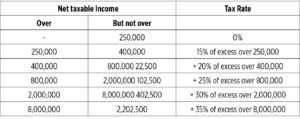House panel OK’s bill on term limits, retirement, attrition system for the military

A HOUSE of Representatives committee has approved a proposal that would provide clear guidelines on the term limits, retirement, and attrition system for the country’s armed forces.
The House Committee on National Defense and Security in a hearing on Wednesday approved an unnumbered substitute bill and committee report for House Bills 554, 941, 4048, 4050, 7677, 7939, 8056, and 8114, subject to amendments.
All versions of the act would limit the terms of the leaders of the Armed Forces of the Philippines (AFP) — composed of the Army, Navy, and Air Force — to three consecutive years unless terminated sooner by the President.
The measure would also replace a provision in Presidential Decree 1638 wherein enlisted personnel would be considered compulsory retired upon reaching the age of 56 or served a total of 30 years of satisfactory active duty, whichever comes later.
For the attrition system, the bill prescribes a maximum tenure-in-grade for officers from captain to general, wherein failure to be promoted to the next grade would mean separation from active service.
Magdalo Party-list Rep. Manuel D.G. Cabochan III recommended several amendments to the bill, which were approved by the committee.
One of the changes is allowing the superintendent of the Philippine Military Academy (PMA) to be eligible for promotion to AFP chief-of-staff upon the recommendation of the President.
The original draft bill proposed that the PMA superintendent would automatically be retired from duty upon completion or termination of term as head of the academy.
“This in turn deprives the superintendent the chance to lead the AFP, which is what most officers aspire for when they enter the service,” Mr. Cabochan said.
He also suggested that the proposed law, if signed, take effect on July 1, 2022 in sync with the start of the term of the new President after next year’s May elections.
A provision was also proposed to require the Department of National Defense to make an impact evaluation within five years from the effectivity of the measure to ensure its proper implementation.
A counterpart bill in the Senate was approved on third and final reading last Sept. 28. — Russell Louis C. Ku




